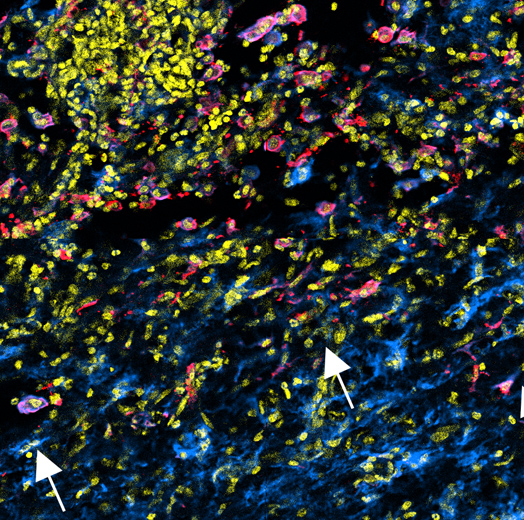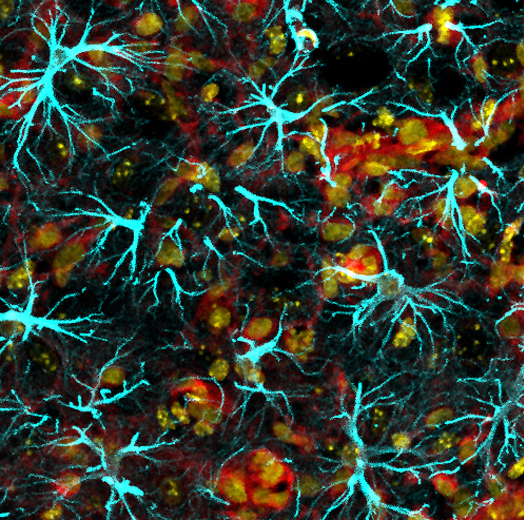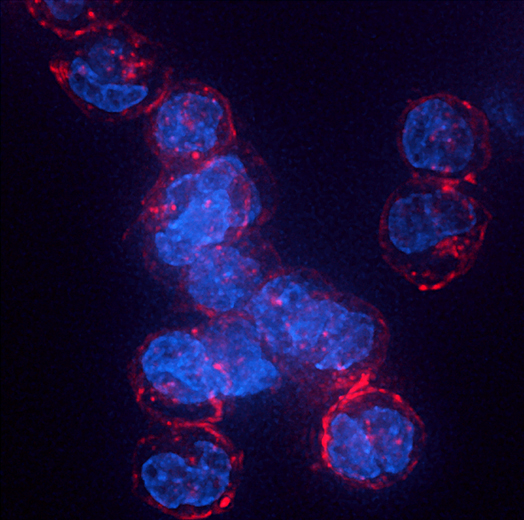Role of neural cells in malignant glioma progression
This project studies how malignant glioma cells change the behavior of normal cells in the brain (glial and endothelial cells) to help tumor progression. We study developmental mechanisms that are reactivated in tumor stem cells and investigate the signals from glioma cells that make glial cells remodel their environment around the tumor. This research utilizes transgenic strains, co-culture models, invasion studies in isolated brain tissue, and live confocal microscopy to analyze tumor invasion and angiogenesis.

Mechanisms of immune escape in glioblastoma
This project focuses on the mechanisms by which tumor cells avoid the attack of the immune system. Our goal is to identify and target soluble signals produced by glioma cells that supress immune activation. This project includes in vitro and in vivo models of immune activation, studies of macrophage/microglia polarization, and development of novel antibodies and CAR-T approaches to reactivate the immune system against glioma cells.
New targets in the microenvironment of brain tumors
We have developed new methods to label proteins in the surface of glioma cells carrying aberrant carbohydrates that are absent in normal cells. This project analyzes the abnormal processing of proteins in glioma cells and identifies new antigens that can be used to reactivate immune responses against the tumor. Methods used in the project include next-generation sequencing, click-chemistry, mass-spectrometry, and development of peptide vaccines.

